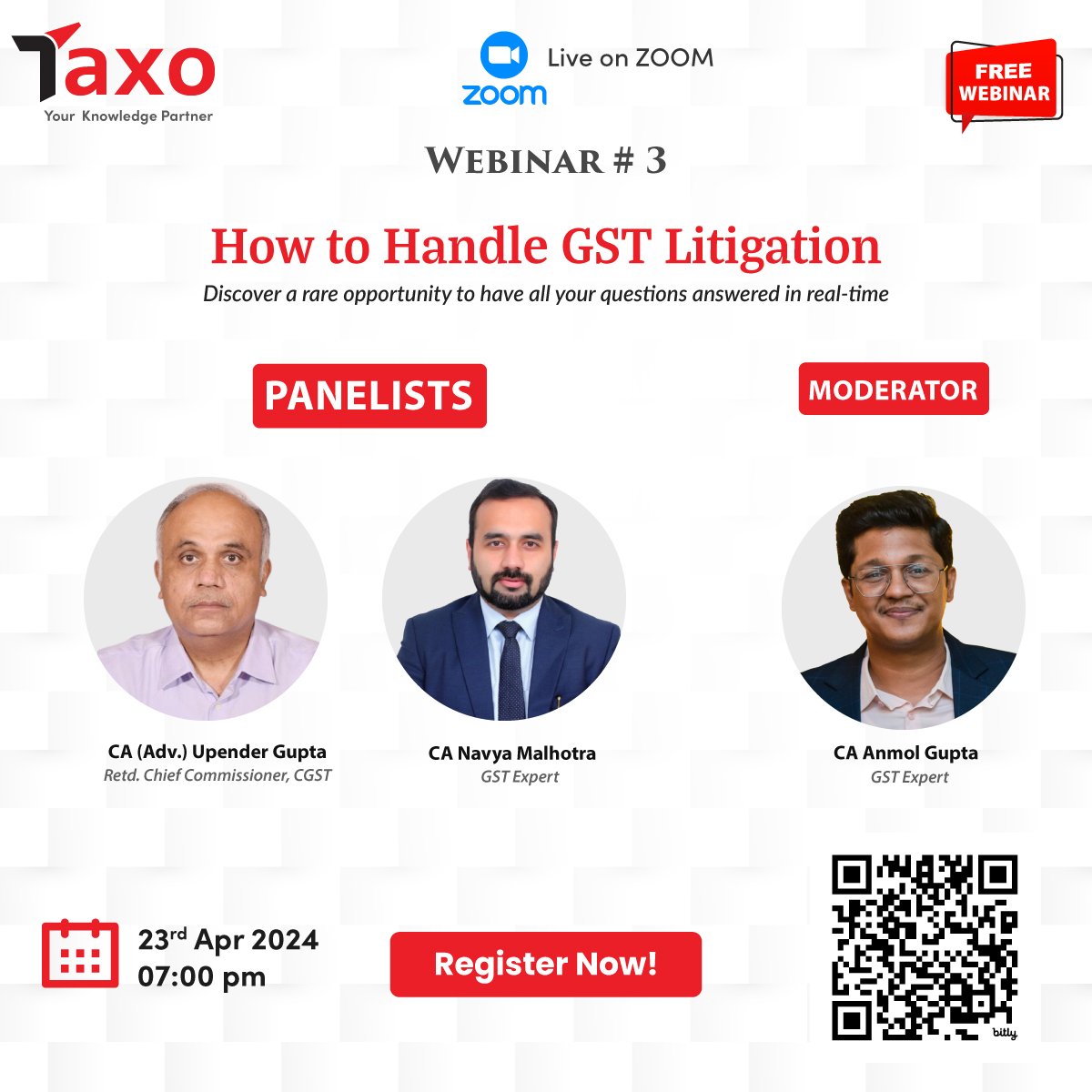One time incentive received by Bank from State Government under its Sahay Yojna Scheme not be considered as subsidy and hence taxable.
Facts- The applicant M/s. Rajkot Nagarik Sahakari Bank Ltd. is multi state Schedule Co-operative bank. The State Govt. announced “Atma Nirbhar Gujarat Sahay Yojna” on 16-5-2020, wherein Nagarik Sahakari Banks (including Banks registered under Multi State Cooperative Act) and credit co-operative societies were to provide loans without securities up to Rs. 1 lacs to customers charging 8% interest. Out of this 8% interest, 2% interest portion was to be paid by the customer and remaining 6% interest portion was borne by the State Government. Further based on the performance of the respective banks, they would be allowed one time incentive amount depending on the total lendings done by the Banks under the said sahay yojna. The applicant has submitted that after disbursement of loan to the beneficiaries, they had forwarded the claim for incentive/subsidy through the office of District Registrar, Co-operative Society, Rajkot and after considering the said claim, the Govt. of Gujarat has sanctioned incentive to the tune of Rs. 9,24,28,936/-.
Issue:
(1) whether the incentives received under “Atma Nirbhar Gujarat Sahay Yojna” dated 16-5-2020 declared by the Gujarat Govt. could be considered as subsidy and not chargeable to tax?
(2) whether the incentive received under said scheme could be considered as supply of service under the provisions of Section 7 under CGST Act?
(3) whether the incentive received under said scheme if considered as supply then would it be covered under sub-section (2) of Section 7 of CGST Act?
(4) whether the incentive received under said scheme could be considered as excluded from the value of taxable supply under clause (e) of sub-section (2) of Section 15 of CGST Act, 2017.
Held: The A.A.R. held that the incentive given by Government is a consideration for the applicant, for the incentive amount received by the applicant is for performing the activity of performing and achieving success for said Sahay Yojna scheme. As long as the payment is made by the Government for getting something in return (i.e., as a quid pro quo for the subject scheme to be performed by the applicant), it has to be regarded as a consideration for that, irrespective of by what name such payment is called. In subject matter, we hold that taxability is not extinguished or vitiated on said payment received by Government to the applicant. We stress that the issue is not taxability on 6% interest amount given by Government but on the subject incentive amount given over and above the 6% interest amount to the applicant. Further, on reading the Schedule III to the Act, we find no merit to entertain subject matter to be covered at any of the 8 transactions mentioned therein.
The applicant has placed reliance on the Advance Ruling in the case of M/s. Rashmi Hospitality Service Pvt. Ltd. – Order No. KAR ADRG 61/2019, dated 20-9-2019. The facts of the said referred Advance Ruling was that the State Govt. has provided the subsidy on the foods supplied by the applicant to the local people and applicant is paying GST on the price which he is receiving from the local people who eat the said food. In this case the subsidy amount is actually passed on the local people as they are benefited by the subsidy provided by the State Govt. because local people are getting the food at lower cost. Whereas in the present case incentive amount is received by the applicant and the applicant itself is benefited, said benefit of incentive is not shared with its customers. The incentive amount is not passed on to the customer who are getting loan. Therefore, the said referred Advance Ruling is not applicable in the present case. Further, as per Section 103 of the CGST Act, any Advance Ruling is binding on the applicant who has sought it and on the concerned officer or the jurisdictional officer in respect of the applicant. Accordingly, Ruling as cited above cannot be relied upon in the present case.
The ruling passed as the subject incentive amount liable to GST. The said Incentive is not subsidy and does not merit exclusion from valuation under Section 15(2)(e) of CGST Act. The subject supply is covered at Section 7(1)(a) of CGST Act and not covered at Section 7(2) of CGST Act.
To read the complete judgment Click here


